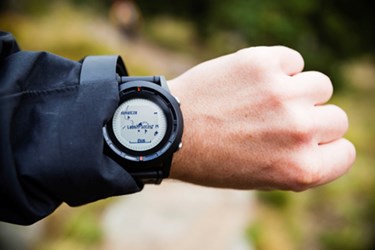Providers Wary Of Wearable Data

By Katie Wike, contributing writer

Consumers seem to agree that wearables are the greatest thing since sliced bread, but their doctors are skeptical the data they capture is accurate.
Devices labeled “low-risk” by the FDA are giving consumers a false sense of accuracy, according to Fierce Mobile Healthcare. Many doctors say that a lack of validation for the data produced by these apps and devices is causing them to stick with the old fashion methods of observation.
Paul Abramson, a primary care doctor and engineer who admits he loves gadgets, is still wary of the data produced by these devices without context. He says one of his patients showed up with pages and pages of Excel worksheets containing data from his wearable device. “Going through it and trying to analyze and extract meaning from it was not really feasible,” he says. To Abramson, the spreadsheets just didn't say all that much. “I get information from watching people's body language, tics and tone of voice,” he says. “Subtleties you just can't get from a Fitbit or some kind of health app.”
“We can't make the leap that just because this data is coming in digitally that it's accurate,” Michael Blum, M.D., a cardiologist at the University of California, San Francisco, told NPR. He says entrepreneurs constantly pitch ideas to doctors about the latest and greatest apps. “Their perspective is, ‘You old doctors have kept things the same as they are for 50 years. We've got new technology and it's going to disrupt health care,’” he explains.
“There is a strong need for better education of developers and healthcare professionals on developing models of care that utilize the technology effectively,” eHealth expert George Margelis of the University of Western Sydney said. “We need better education for healthcare professionals in particular on the basics of eHealth technology and a way for them to get more actively involved in app design and implementation.” Margelis also said he believes many mHealth apps are “useless.”
But don’t expect this trend to end anytime soon. The Accenture Digital Consumer Tech Survey 2014 found “more than half of consumers … are interested in buying wearable technologies such as fitness monitors for tracking physical activity and managing their personal health.”
